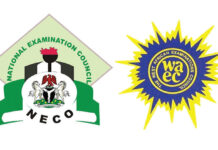Education is the cornerstone of progress and development, shaping the future of nations and their citizens. In Africa, several countries have made significant strides in enhancing their education systems, prioritizing access, quality, innovation, and inclusivity. Based on rankings from reputable sources such as Bscholarly, the World Economic Forum, and UNESCO, we explore the top 10 African countries with exceptional education systems.

Seychelles, an island nation in East Africa, takes the top spot, having fully achieved UNESCO’s “Education for All” goal. With a literacy rate of 95.9% and a global ranking of 43rd, Seychelles surpasses several countries, including Ukraine, Hungary, Russia, and the UAE.
Tunisia follows closely, ranking 71st globally with a 61.4-point excellence rate. The country allocates 20% of its national budget to education, emphasizing the importance of investing in the future through quality education.
Mauritius, with a score of 61 points and a global ranking of 74th, has made significant strides in providing high-quality education. The country’s focus on vocational training and compulsory schooling up to age 16 underscores its commitment to holistic education.
South Africa boasts a literacy rate of 94% and ranks 4th in Africa in educational development, with 58.4 points. The country’s emphasis on literacy and educational progress is evident in its global ranking of 84th.
Algeria, Botswana, Kenya, Cape Verde, Egypt, and Namibia complete the list, each demonstrating a commitment to providing accessible and quality education to their citizens.
These rankings reflect the dedication of these African nations to educational progress and development. As they continue to invest in education, the future looks promising for the next generation of African leaders and innovators.
The importance of education cannot be overstated. It is the foundation upon which nations build their futures, and Africa is no exception. By prioritizing education, these countries are not only shaping the minds of their citizens but also driving economic growth, innovation, and progress.
As the continent continues to evolve, it is essential to recognize and celebrate the achievements of these education powerhouses. By doing so, we can inspire others to follow in their footsteps, creating a brighter future for Africa and its people..a and its people.



